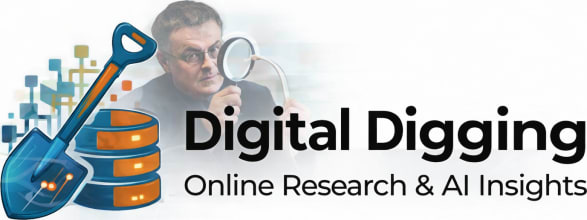How AI can understand what you're really looking for
Ctrl-F is dead, long live the chatbots
Traditional document searching relies on exact keyword matching—a method that fails when information is deliberately or unintentionally obscured by alternative terminology. This creates an information asymmetry that puts researchers, journalists, analysts, and everyday users at a disadvantage.
AI cuts through this barrier by grasping meaning, not just matching text. This guide provides concrete techniques to extract information deliberately hidden behind linguistic smokescreens.
We all rely on keyword searching—Control+F on Windows, Command+F on Mac—to locate critical information. Yet this common approach fails us when we need it most. I've experienced countless failures simply because I couldn't anticipate the exact terminology used in my first round of research.
During one of my first analyses of an annual report, I searched naively for "financial fraud" and found nothing, completely missing the euphemistic "revenue enhancement strategies." Looking for "hidden debt," I failed to catch "balance sheet optimization" that concealed the same issue.
This linguistic sleight-of-hand extends far beyond finance. In corporate communications, I've searched for "layoffs" and missed "workforce optimization." Environmental reports hide "environmental damage" behind "temporary ecological alteration." Privacy policies obscure "privacy violations" as "enhanced data collection practices." Product disclosures bury "security breaches" or "product defects" under "unauthorized system access events" or "quality variance incidents." The only solution for a researcher to spot these subtleties is to read the full report first—which, to be fair, is always a good practice anyway.
These euphemisms aren't random—they're strategic. They're deliberately crafted to evade detection by anyone using conventional keyword searches. The words chosen specifically create a semantic barrier between you and the information you seek.
AI-powered tools understand semantic relationships and contextual meaning and can reveal what's been deliberately hidden from view. They recognize that:
"Workforce optimization" and "right-sizing initiatives" actually mean layoffs
"Cardiac arrest" and "heart attack" refer to the same medical condition
"Diabetes mellitus" is what most people know simply as "sugar disease"
Language has been weaponized to create information asymmetry—almost as if organizations wanted to keep crucial data hidden from you. But that control is slipping away as semantic search technology finally bridges the gap between what you look for and what you need to find.

Control+F on Steroids: Real-World Examples
AI can help to find hidden information. Here is a summary how it helped me.
Corporate Documents
When reviewing corporate documents for potential misconduct, Control+F searches for "violations" or "misconduct" yielded no results. AI analysis flagged concerning passages about "regulatory adaptations," "compliance adjustments," and "procedural variances"—all euphemisms for the same problematic behaviors I was investigating.
Medical Research
When searching for "inflammatory conditions" in a 200-page medical textbook, Control+F found only 8 mentions. But the AI identified 47 relevant passages discussing "cytokine storms," "autoimmune responses," and "elevated CRP levels"—terms Control+F would never connect.
Legal Contracts
Searching a lengthy contract for "termination clauses" with Control+F yielded just 3 instances. AI found 22 critical sections that discussed contract ending conditions using phrases like "cessation of services," "nullification provisions," and "agreement dissolution."
Climate Research
Researching "climate change impacts" in scientific journals hit dead ends with Control+F. The AI identified relevant sections discussing "rising sea levels," "changing weather patterns," and "shifting agricultural zones"—none of which contained the exact phrase "climate change impacts," yet all described the phenomenon I was investigating.
Guide to get Control+F on Steroids
How do you uncover hidden information with the help of chatbots? Here's a guide to supercharging your document searches - whether for documents you trust or those you don't.



